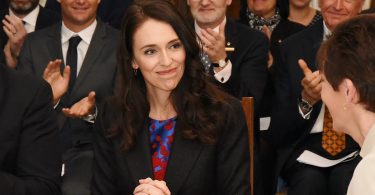Over four million Syrians have been forced to leave their country since the civil war started in 2011. Most who flee normally reach camps in Turkey, Lebanon or Jordan. These countries have taken almost all of the conflicts refugees. Jordan alone has accepted approximately 1.4 million Syrians. This makes up 21 per cent of Jordan’s 6.7 million citizens. Jordan is a relatively wealthy country in the region. Yet it is still struggling with such large numbers, all received within a short time period. As the refugee crisis deepens in Europe, many have criticised the Gulf States for their supposed lack of assistance.
Could do more
According to Amnesty international, Kuwait, Bahrain, Qatar, United Arab Emirates, Oman and Saudi Arabia have all taken zero refugees. Various reports have claimed that such countries could take up to two million refugees. These Gulf States possess enormous wealth, and are often sparsely populated.
Gulf States do not agree with the current criticism. A recent article on the al-Hayat news website by journalist Jamal Khashoggi discussed why Saudi Arabia has been reluctant to accept any Syrian refugees. He said, “Our economy cannot tolerate hosting refugees who turn into residents.” The article also refers to Saudi officials who estimate that over half a million syrians have entered their country since 2011. Instead of being refugees, they entered via a visit visa. Khashoggi also said that “[Saudi Arabia’s] Labour market is already saturated with foreign labour.” Whilst true that foreign labour constitutes up to one third of the Saudi population, it ignores the humanitarian basis for accepting refugees.
Numbers. http://t.co/dPawHZ2Ieo
— H. Baron v. Feldhoff (@HFeldhoff) September 15, 2015
Europe has been increasing critical of the Gulf States lack of action. Speaking to Bloomberg, Danish Finance Minister Claus Hjort Frederiksen said, “I’m most indignant over the Arab countries who are rolling in money and who only take very few refugees. It’s completely scandalous.”
Financing refugee camps
Gulf states, particularly Saudi Arabia, have been contributing financially. Speaking to CNN a United Arab Emirates source said that the country had financed refugee camps in Jordan, Lebanon, Iraq and Turkey costing $72 million. Other offers to help financially have been less well received. Saudi Arabia has offered to build 200 mosques in Germany to help with the growing refugee population. German politicians have dismissed this plan as a cynical gesture. Andrew Scheuer, the general secretary of the CSU party in Bavaria, said “Where is the solidarity in the Arab world?”
America has taken far more refugees than the Gulf States. 1500 refugees have been accepted under the Obama administration, and according to a White House spokesman Obama is pledging to “scale up” this number to at least 10,000 over the next fiscal year.
Despite all of the recent criticism, Gulf States are unlikely to change their policy on refugees. The Gulf nations are part of a very small group of countries that have not signed the 1951 U.N treaty on refugees. This means they have no legal obligation to accept refugees or provide asylum. The Gulf nations also cite security reasons for not accepting refugees, albeit less publicly. Most of the Gulf states withstood the Arab spring, their absolute monarchies surviving calls for democracy. Whilst most have made certain concessions, Saudi Arabia is letting women vote and stand for the first time in local elections, they fear refugees could have a political impact. Saudi Arabia is particularly worried about the security threat posed by Syrian refugees. The Islamic State has repeatedly dismissed the legitimacy of the Saudi state, refusing to even call Saudi Arabia.
Whilst similar security fears have been used in a European context, these are largely an attempt to scaremonger. Although the Gulf states perhaps have more concern, they still have a moral obligation to help the refugee crisis. Their vast wealth and resources means that they are perfectly able to accept thousands, even millions, of refugees.








